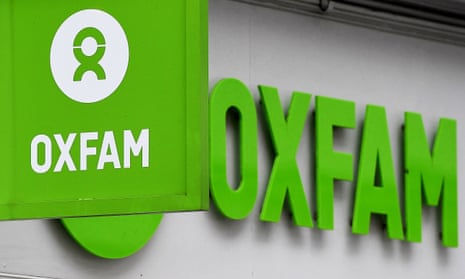Oxfam has been accused of further failures in Haiti by keeping a senior aid worker in the earthquake-torn country for more than a year despite reported sexual harassment claims.
According to an internal report seen by The Times, the charity attempted to “contain” sexual harassment allegations involving Raphael Mutiku, an aid worker who led Oxfam’s installation of water supplies in Haiti after the earthquake.
The documents claim to show a final written warning was issued to Mutiku, a Kenyan engineer in his 40s, in June 2010, following allegations of sexual harassment from female colleagues.
However, six months later when it was alleged that Mutiku was paying young women for sex at his Oxfam accommodation, his manager at the charity’s headquarters in Oxford is reported to have said he hoped the charity could “contain this”.
Oxfam has since confirmed the decision not to dismiss the engineer was made by Roland van Hauwermeiren, the then country director who recently found himself at the heart of the aid worker sex scandal.
Quick GuideHow the Oxfam-Haiti controversy unfolded
Show
What happened in Haiti?
Oxfam GB has been accused of covering up an inquiry into whether its staff used sex workers in Haiti in 2011 during a relief effort following the previous year’s earthquake. It is alleged those who were paid by the aid workers may have been underage. An investigation by the Times found that Oxfam had allowed three men to resign and sacked four others for gross misconduct after an inquiry into sexual exploitation, the downloading of pornography, bullying and intimidation.
How much money could Oxfam lose?
The UK government has threatened to cut funds to Oxfam unless it shows “moral leadership”. In 2016-17, Oxfam’s income was £408.6m, according to its annual report, including £31.7m from the DfID. Aidan Warner of the National Council for Voluntary Organisations said: “They will be concerned not just about the money but the endorsement that the relationship with DfID represents, and they are clearly working hard to regain the confidence of the government as well as the public.”
How much does the DfID give to NGOs?
Last year the UK government dedicated £13.3bn to international aid. About £1.2bn of UK aid is spent annually through NGOs. In 2016, the UK was one of only six countries to spend 0.7% of gross national income on aid, a target set by the UN for all developed countries. Penny Mordaunt, the international development secretary, has said the UK remains committed to this target, despite some Tory MPs calling for it to be dropped.
Should other NGOs be worried?
A number have now been implicated. Some of the employees involved in the Haiti case went on to work for other NGOs. Over the weekend, the Sunday Times also reported that more than 120 workers from Britain’s leading charities have been accused of sexual abuse in the past year. Save the Children, which in 2016 secured multi-year contracts worth £91m with the government, had 31 cases, 10 of which were referred to the police. The British Red Cross, which admitted a “small number of cases of harassment reported in the UK”, received £16.3m in DfID funding.
Van Hauwermeiren was one of three Oxfam staff members to resign in 2011 after an internal investigation found troubling evidence of his behaviour.
Mutiku was dismissed in 2011 following the same investigation. He has denied paying prostitutes.
An Oxfam spokesman said: “The behaviour of some former Oxfam staff working in Haiti following the 2010 earthquake was completely unacceptable, contrary to our values and the high standards we expect of our staff.
“We are very sorry for what happened and from 2011 we introduced stronger measures to prevent and stamp out harassment and abuse.
“The decision not to sack Raphael Mutiku in 2010 was wrong. It was taken by Roland van Hauwermeiren, the then country director, who as recent reports have detailed was himself guilty of sexual misconduct. His decision-making was therefore compromised. Mutiku was dismissed in 2011 following an internal investigation.
“Among the measures we introduced after our investigation in 2011 was a confidential whistleblowing hotline to help staff raise concerns without alerting colleagues or their managers – something we believe would have helped us uncover what was happening in Haiti sooner.
“This week we announced details of our comprehensive plan to further strengthen our safeguarding measures, including new standards to improve referencing, additional staff and resources for safeguarding, and the appointment of the co-chairs of the independent commission to review our culture and practices.
“We are committed to continue to do all we can to help the millions of people every year affected by humanitarian disasters and to improve the lives of those living in poverty.”








